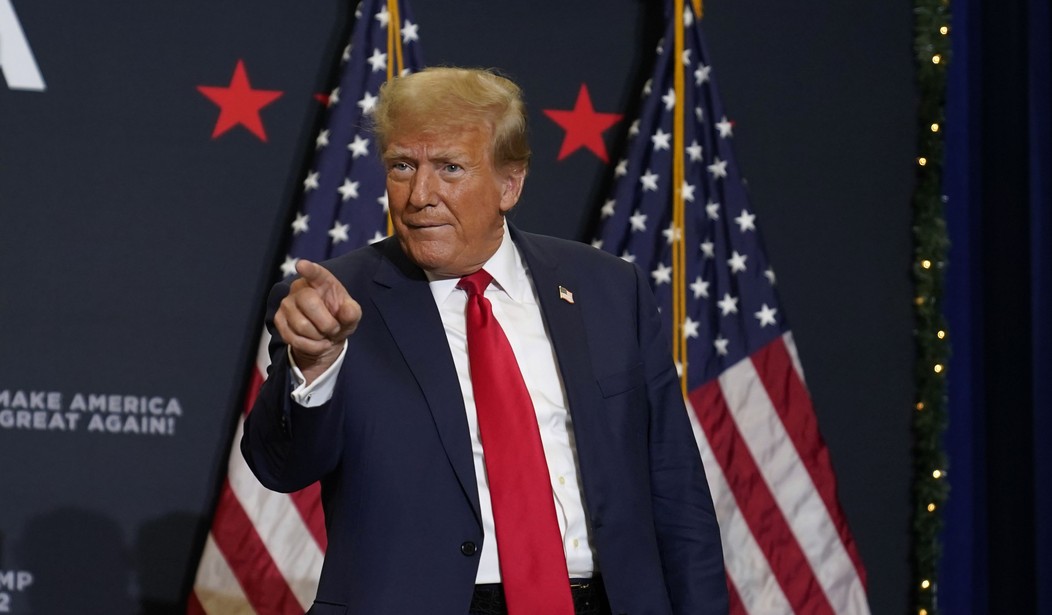The Colorado Supreme Court has construed the 14th Amendment to bar Donald J. Trump from running for President. Does that Court have jurisdiction to construe and execute Section 3? It does not. Is President Trump ineligible to appear on the ballot because of Section 3? He is not.
Under Section 5 of the 14th Amendment, the Colorado Supreme Court lacks jurisdiction. Even if it had jurisdiction, President Trump never “engaged” in “insurrection or rebellion” against the United States, and he never provided “aid and comfort” to an enemy of the United States within the meaning of Section 3. Section 3 does not apply. Colorado’s erroneous speech-based decision not only deprives voters of their right to choose a president but also infringes Americans’ First Amendment rights to challenge government officials and actions.
Section 3 reads in pertinent part: “No Person shall . . . hold any office . . . under the United States . . . who, having previously taken an oath . . . as an officer of the United States . . . to support the Constitution . . . shall have engaged in insurrection or rebellion against the same, or given aid or conform to the enemies thereof. But Congress may by a vote of two-thirds of each House, remove such disability.” Section 5 reads in pertinent part: “The Congress shall have the power to enforce, by appropriate legislation, the provisions of this article.”
Colorado’s Supreme Court erroneously held itself possessed of jurisdiction and Trump disqualified to run for elective office. The United States Supreme Court should swiftly overrule that decision. It should make clear to all states that they do not have jurisdiction to construe and execute Section 3, a function reserved to the U.S. Congress by Section 5.
Recommended
The 13th, 14th, and 15th Amendments arose in the aftermath of the Civil War between the United States of America (USA), which operated under the Constitution of the United States, and the Confederate States of America (CSA), which seceded from that Constitution and the laws thereunder, adopted its own Constitution and governing laws, and engaged in war against the USA from 1861 to 1865. The purpose of the Amendment was to prevent those enemy combatants and supporters from holding elective office or serving as electors. The amendment’s primary objective was negated when in 1872 Congress passed the Amnesty Act. That Act removed the disqualification of most Confederates by a two-thirds vote of Congress in accord with Section 3.
Nevertheless, Section 3 remains a part of the Constitution, but the Colorado Supreme Court lacks jurisdiction to interpret and execute it. Under Section 5, only Congress has that legislative power. Moreover, the Colorado Supreme Court’s construction of Section 3 is so broad as to penalize free speech, which allows every American citizen, including the President, to challenge government officials and actions. By its plain meaning, Section 3 applies to actions to overthrow the government or obstruct constitutional duties to prevent the functioning of government. It does not apply to political speech protected by the First Amendment critical of officials and government actions, to pleas that election fraud be uncovered or that a fraud tainted election not be certified.
Indeed, it is every candidate’s constitutional right, and, in the case of President Trump, his Article II duty to “take care that the laws are faithfully executed,” that he or she be free to condemn election fraud and call into question the results of elections tainted by fraud.
Under Section 5, Congress alone has the authority to enforce the amendment through appropriate legislation, not the states and not state courts. Under Section 3, President Trump cannot be denied his place on the ballot unless he “engage[d] in insurrection or rebellion against” the United States in a manner analogous to the Confederates who took up arms to overthrow and defeat the United States. The amendment is not intended to deprive individuals of their First Amendment right to speak against election fraud or election certification, only to disqualify from elective office those who engaged in or aided enemy acts to overthrow the United States.
Section 3 reaches those who gave “aid and comfort to the enemies” of the United States. An enemy is not merely a protestor but those at war with and who attempt to overthrow the United States (akin to the CSA and its officers). The language is borrowed from the Treason Clause (Art. III, Sect. 3, Cl. 1: “Treason against the United States, shall consist only in levying war against them, or in adhering to their enemies, giving them aid and comfort”). President Trump did not give aid and comfort to any enemy of the United States. He did not give aid and comfort to individuals who committed violence, property destruction, or even trespass. He urged protestors to be peaceable and law abiding.
The United States Supreme Court should reverse Colorado’s decision and send an unmistakable message to the states that they have no jurisdiction to construe and execute Section 3.
























Join the conversation as a VIP Member